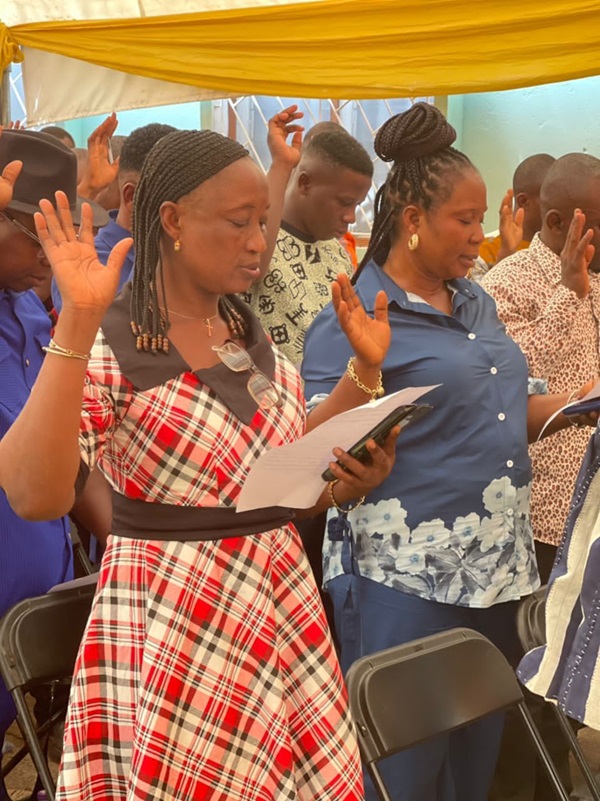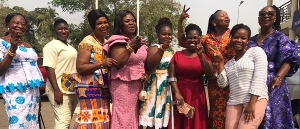The recent inauguration of District Assemblies and Unit Committees in Ghana has brought to the forefront a persistent issue of the limited representation of women in these decision-making spaces. Despite efforts by the women’s movement in Ghana and Africa at large to promote gender equality, women continue to be underrepresented.
The Ministry of Local Government, Decentralization and Rural Development (MLGDRD) scheduled the nationwide inauguration of 259 out of 261 Metropolitan, Municipal, and District Assemblies (MMDAs) on Monday, February 12, 2024. According to section 6 (1&2) of Act 936, the District Level Elections (DLE) shall be held every four years and shall be held six months - apart from parliamentary elections. Since the inception of the decentralization system of governance in 1988, Ghana has had eight successive district level elections.
The tenure of Assembly and Unit Committee Members who were elected into office in 2019 had ended in December 2023, except the two districts of Nkoranza South and North in the Bono East Region, whose elections were conducted in 2021, primarily due to security reasons.
Statistical Results of the 2023 DLE
In the context of the 2023 District Level Elections, the issue of low women’s participation warranted utmost national attention. In fact, ahead of the elections, the Minister of Local Government, Decentralization and Rural Development, Dan Botwe, had indicated in an exclusive interview with the Daily Graphic that government was determined to ensure that the majority 30 per cent government appointees to the 259 MMDAs were women and persons living with disabilities (PWDs).
During the event of the inauguration however, it became evident that out of the total number of unit committee and district assembly member positions, only a small fraction is occupied by women. A total of 95.9 per cent of the 6, 243 Assembly Members Elect were males, while females constituted only 4.1 per cent.
In terms of the Unit Committee elections, 22, 646 out of the 42, 094 male candidates won, representing 87.2 per cent of the total unit committee members elect. Relatedly, 3, 335 out of the 5, 666 female candidates for the Unit Committee elections won, representing only 12.8 per cent of the total elected members.

Discussion and Analysis
The percentage of elected women assembly members is merely an increase of 0.3 per cent only, compared to the 3.8 per cent in the previous elections in 2019.
In addition, the 259 women who won the District Assembly Elections constituted just 25 per cent of the total female applicants who stood at 1, 049. These turnouts represent a low increase, compared to the UN benchmarks set at 30% female representation in decision-making spaces.
The implications of this gender disparity are far-reaching. The voices and perspectives of women, who make up significant proportion of the population in Ghana, are not adequately represented in the formulation of policies and the allocation of resources at the local level.
This undermines the principles of democracy and hampers the progress towards women’s empowerment and gender equality. Women’s organizations like ABANTU for Development with support from the African Women’s Development Fund (AWDF) have been working hard to empower women in Ghana and increase their participation in politics and decision-making. Despite these efforts, the limited numbers of women in District Assemblies after the recent inauguration highlights the need for sustained action and systemic change.
Conclusion
Addressing this gender disparity requires a multi-faceted approach. It involves creating an enabling environment that encourages women’s participation in decision-making, breaking barriers that hinder their progress, and implementing affirmative action measures to ensure equal representation. It also requires raising awareness and promoting gender-sensitive policies that can help challenge societal norms and biases that perpetuate the under-representation of women.
While Ghana strives for inclusive and equitable governance, it is crucial to recognise the importance of women’s voices and experiences in decision-making processes. Achieving gender parity in District Assemblies will not only enhance democratic values, but in addition, contribute to a more effective and responsive governance at the local level.
Opinions of Thursday, 15 February 2024
Columnist: Amma Mirekua



















